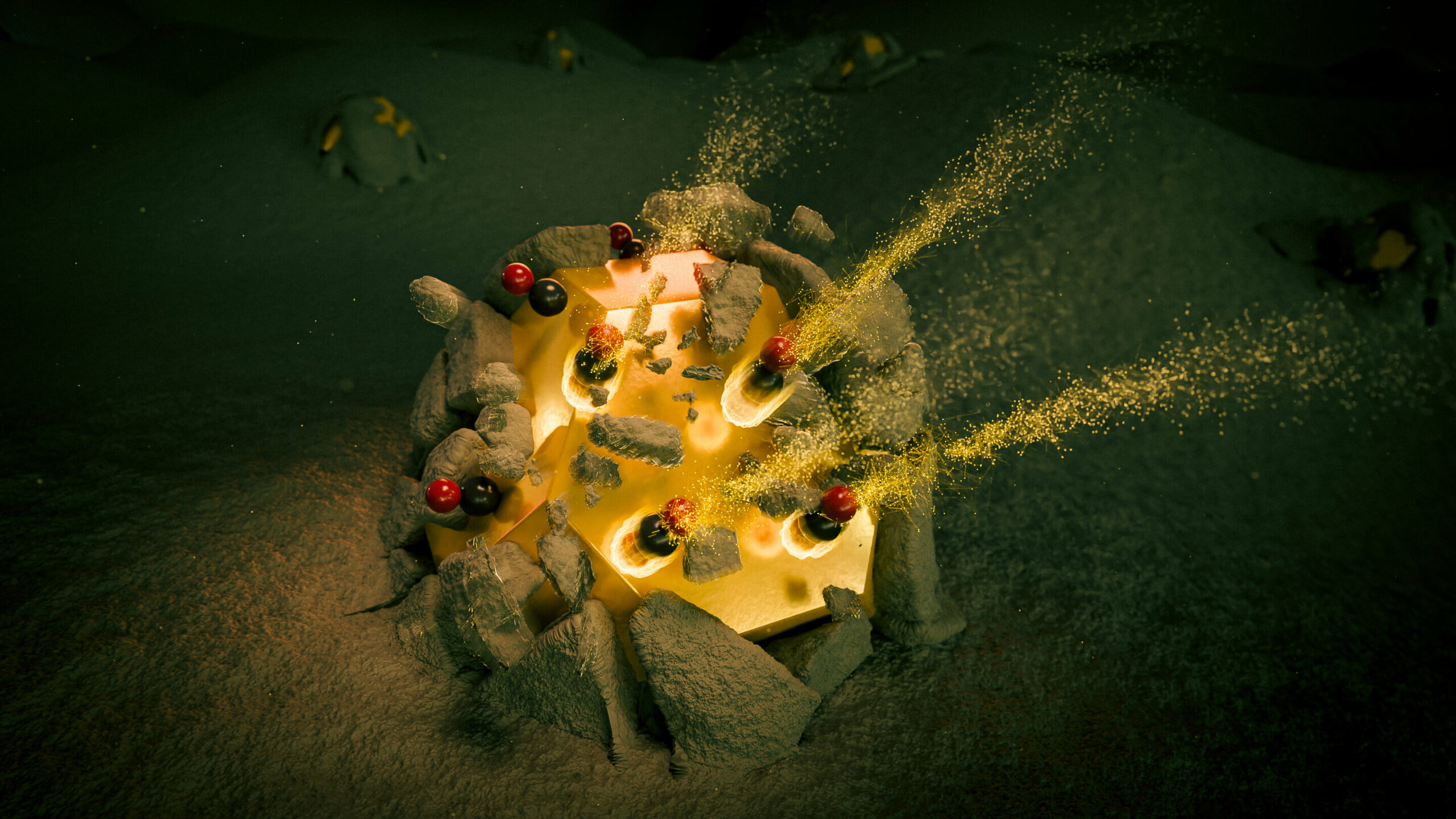

Researchers at Utrecht University and the University of Antwerp have discovered that a catalyst for clearing CO2 becomes more active and selective if its pretreatment is modified. Catalysts are essential for clearing CO2 or converting it into something useful in the energy and transportation sectors where large amounts of the greenhouse gas are emitted. The researchers discovered that better selectivity is desirable because the catalysts provide fewer unwanted by-products and improved activity results in a faster progression of the catalytic reaction.
The team of scientists made this principle visible using advanced electron microscopy. They inserted a special nanoreactor into the microscope and were able to see exactly what happened to the catalyst at the atomic level. The scientists used electron microscopy techniques that are generally difficult to combine with experiments in a nanoreactor. Researchers with different backgrounds and access to a variety of advanced techniques each laid out small pieces of a larger puzzle. Ultimately, these pieces combined led to the complete picture.
The international research team that worked on the study is extremely interdisciplinary. According to Sara Bals, this was critical to achieving the results obtained. The team of scientists included Matteo Monai, Kellie Jenkinson, and Angela Melcherts who are the first authors. The study reveals for the first time what happens at the atomic level during this interaction. The sliding layers of titanium have never been seen before. The scientists expect the same principle to apply to catalysts with metal oxides other than titanium oxide.
In the realm of software development, the ability to swiftly and accurately address bugs is…
The realm of quantum computing and communication is not just an abstract dream anymore; it…
In a remarkable leap for the field of material science, a collaborative research initiative has…
Throughout Earth's vast history, our planet has endured five major mass extinction events that reshaped…
Rainfall is a vital element of our planet’s hydrological cycle, yet many aspects of its…
On a night when the universe aligns, a mesmerizing phenomenon awaits: the appearance of the…
This website uses cookies.